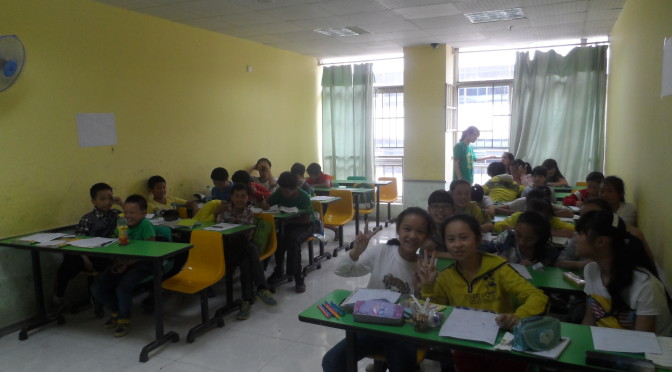How to teach English in China
In the private school sector, it is important to remember that your job is to teach English in China to students as extra classes outside of their already busy and demanding public school schedule. Therefore, the students you are teaching will have little free time and a lot of pressure from their demanding schedule. This article gives my experience to suggest how to engage and teach these students without tiring them out and giving them extra pressure.
Our duty as a TEFL teacher isn’t to one dimensionally teach English in China. I don’t believe that the job of an English teacher when teaching English in China that their job is solely to dictate to a child English. If someone wants to learn English, there are plenty of books and English reading material. If learning a language was just as simple as reading a book. Then we would all easily learn multiple languages and not require foreign language teachers at all. I see my job as a foreign English teacher to teach English in China by slipping English into fun and games so that the young students learn, use and develop their English without realising. In order to do this, I see my role as to practice their English indirectly through playing an ever changing multitude of different games, dialogues, watching short movies and competing in Competitions. The difficult part is continually inventing new and interesting games and activities to keep your classes stimulated.
This is done by using numerous teach English in China websites (such as Busyteacher and ISLcollective) , talking to other teachers and reintroducing traditional vocabulary such as fruit and food through different methods. Below is a number of games and incentives that can be adapted for all different kinds of new vocabulary and classes.
Hang man
Ideal for new vocab, play this traditional game using your keyword or last week’s key vocab word. For example, if you are doing flags of the world cup, then use; the world cup as the guess phrase. This will check to see if students remember last week’s work along with warm them up for the coming class.
Word searches and crosswords
I found that Chinese students particularly enjoy word searches as the Chinese character language is such that they have probably never ever played a word search before. These are an excellent way to practise student’s word association and spelling. However, they should not be abused and used in moderation with lots of other activities which practice their speaking and grammar.
Castle game
The castle game is a fun way to spark the student’s love of competition. You divide the class into two such as two halves or boys versus girls before giving each team a three tier castle on the board. You then describe something and the first team to correctly shout out the answer wins. For example, if you are teaching fruits, your say it is a fruit, it is red, it is sweet. The first team to yell ‘apple’ wins, they then choose whether to attack the enemy castle, reducing it by one tier or adding a tier to their own. The last castle standing or the biggest castle after a set time wins.
Using simple games like these to teach English in China will help students forget that they are still in class and help to subliminally teach and improve their English. Of course, this is greatly helped and depends on you continually speaking English to them thus creating an immersed classroom environment. Best of luck!

